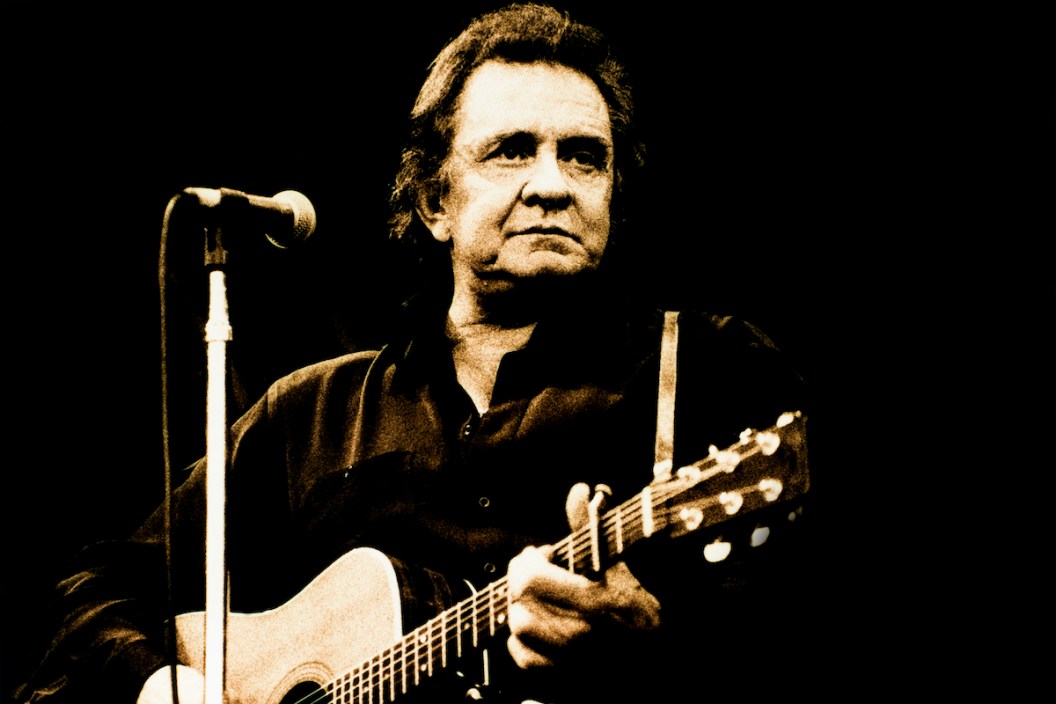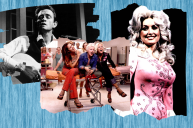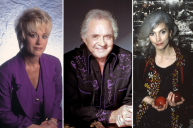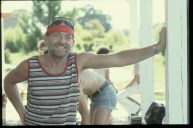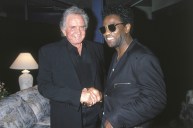As hard as this might be to fathom now, Johnny Cash's career was dead in the water by the early '90s. Aside from his work with country supergroup the Highwaymen, Cash floundered in the '80s to the point that he lost a deal he'd had since the '50s with Columbia Records. A 1987- 1991 stay on Mercury Records netted just one Top 25 country single, with duet partner Hank Williams Jr.'s popularity at the time likely helping "That Old Wheel's" cause. Granted, the 1991 recipient of the Grammy's Legend Award still got his due as an icon, but a record deal at this point —much less a hit record— seemed like a pipe dream.
After seeing Cash perform in 1992 at Bob Dylan's 30th anniversary concert, record label boss and producer Rick Rubin began plotting a reclamation project. Rubin had co-founded Def Jam Records and worked with the likes of Public Enemy and The Cult, making him a force in the hip-hop and heavy rock spaces. Of course, Cash's past greatness as a singer-songwriter guided more than the course of country music, so his 1993 deal with Rubin's American Recordings imprint wasn't as out of the ordinary as some still assume.
Upon its April 26, 1994 release, Cash's first of six albums with Rubin changed the conversation about a supposed relic of the past. It was a refreshingly raw listening experience, featuring only Cash's weather-beaten vocals and an acoustic guitar. Songs were recorded near Nashville at the Cash Cabin and in Los Angeles in Rubin's living room— with two live cuts from a gig at Johnny Depp's infamous club the Viper Room. In this less-is-more style, Cash originals sounded pleasantly guttural, with lived-in covers of unlikely material winning over fans outside of the country bubble.
American Recordings peaked at No. 23 on Billboard's Top Country Albums chart— the highest placement of a Cash solo album since 1976's One Piece at a Time reached No. 2. Critical acclaim well surpassed respectable commercial sales, culminating with a 1995 Grammy award for Best Contemporary Folk Album and the 366th spot on Rolling Stone's 500 Greatest Albums of All Time list.
A building block of today's Americana music was followed by American II: Unchained (1996), American III: Solitary Man (2000), American IV: The Man Comes Around (2002), American V: A Hundred Highways (2006) and American VI: Ain't No Grave (2010). The best-known recording from this series came in 2002 when Cash found a blues number buried inside of Nine Inch Nails' "Hurt."
Here's a track-by-track breakdown of the first volume of Cash's career-saving and legacy-sealing American Recordings series.
"Delia's Gone"
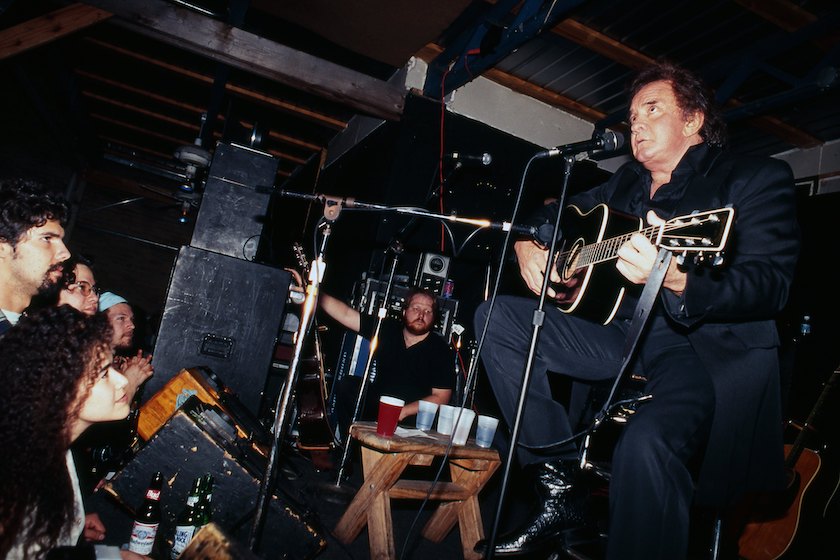
Catherine McGann/Getty Images
Cash previously recorded this haunting, old folk tune about the 1900 murder of a Black teenager in Savannah, Ga. for 1962's The Sound of Johnny Cash. It's a fitting opening chapter in a series marked by disturbing realism. Listen here.
"Let the Train Blow the Whistle"
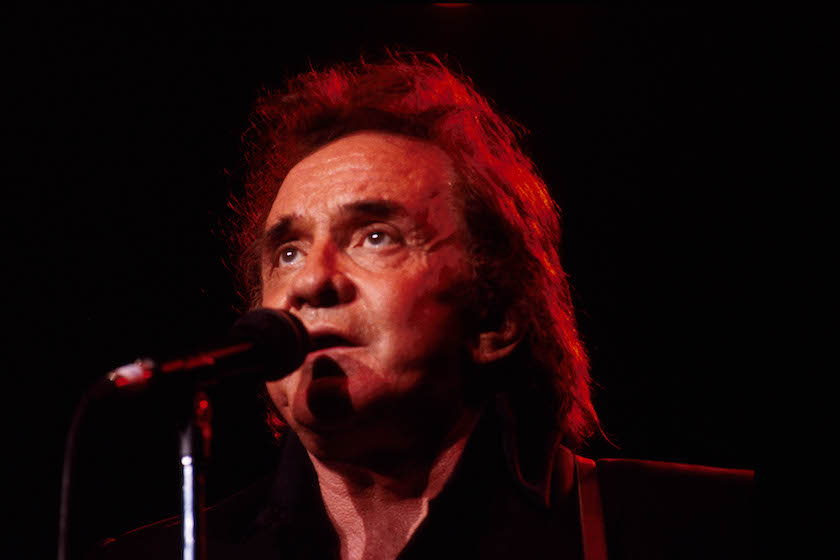
Bob King/Redferns
Though this one could pass as an old folk song, it's a Cash original. In the grander scheme of things, it's yet another in a very long line of railroad-themed Cash classics that date back to at least 1955's "Hey Porter." Listen here.
"The Beast in Me"
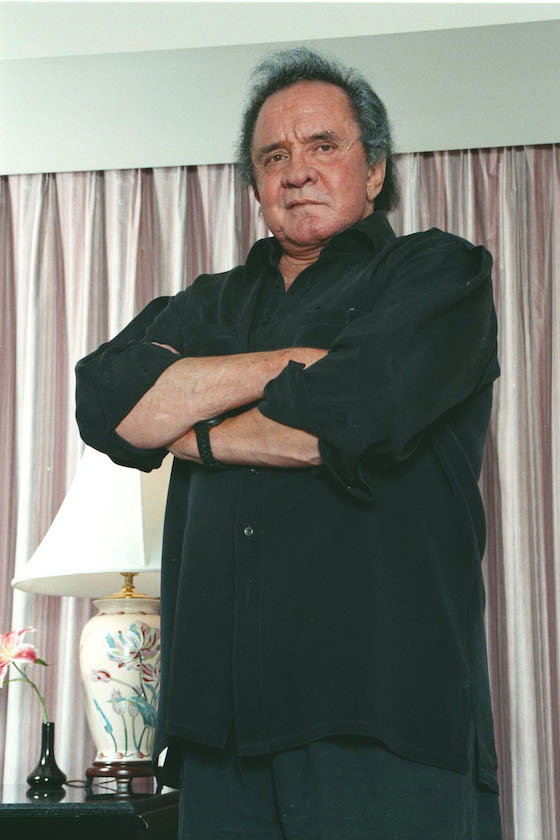
Russell Einhorn/Liaison
Powerpop pillar Nick Lowe wrote this poetic and introspective song which sounds autobiographical when sung by Cash. Indeed, its Jekyll and Hyde theme syncs with the country legend's well-known tale of addiction and recovery. It's from the extended Cash-Carter family, as Lowe is an ex-husband of Cash's step-daughter, Carlene Carter. Listen here.
"Drive On"
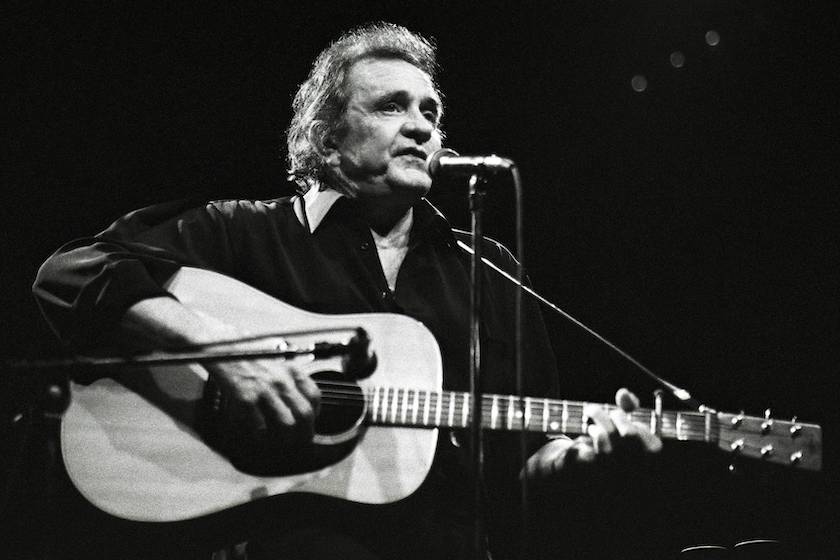
Rob Verhorst/Redferns
Cash wrote a lament for Vietnam veterans accustomed to outliving their friends on par with the revered works of Bruce Springsteen, John Prine and other poets of the people. It's easily among the best originals on any of Cash's American Recordings albums. Listen here.
"Why Me Lord"
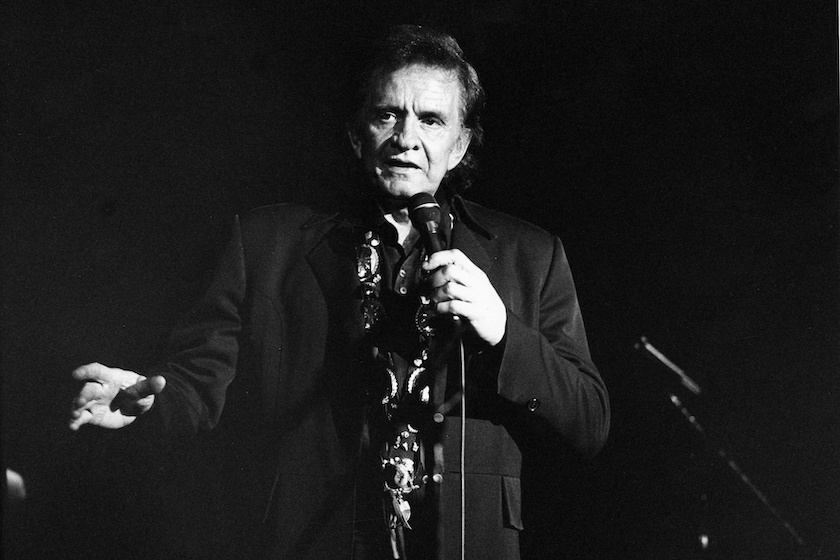
Hülzer/ullstein bild via Getty Images
The faith that pulled Cash through the highs and lows of his journey from Dyess, Ark. to the Viper Room is at the heart of many of his finest recordings. Here, he interprets a musical prayer by fellow Highwayman and person of faith Kris Kristofferson. Listen here.
"Thirteen"
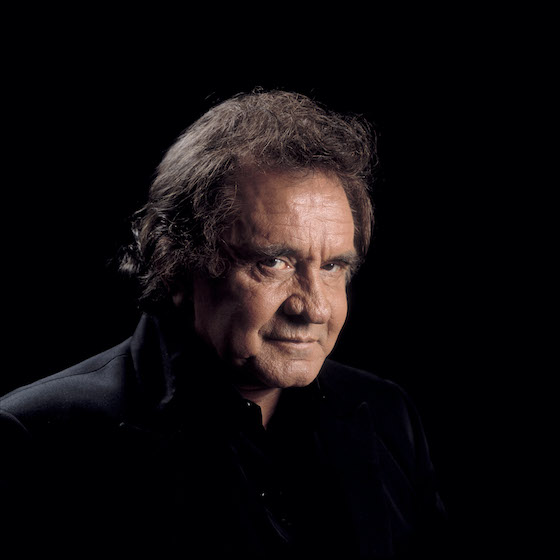
Paul Natkin/Getty Images
If a song written by Glenn Danzig with Cash in mind sounds out of sorts, consider this: Danzig's vocal style with The Misfits and Samhain and as a solo artist borrowed liberally from that of Cash's fellow Million Dollar Quartet member Elvis Presley. It's as chilling as you'd hope, though the Biblically-sound lyrics of Cash original "Redemption" are way more terrifying. Listen here.
"Oh, Bury Me Not" (Introduction: "A Cowboy's Prayer")
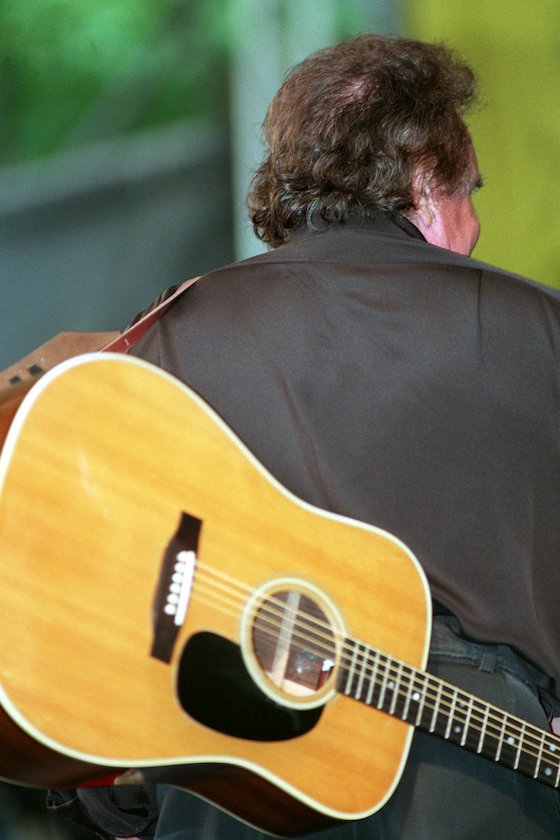
Achim Scheidemann/picture alliance via Getty Images
American Recordings' song selection covers so many of Cash's influences, from folk standards to country-gospel and this, the most famous cowboy ballad of them all. Unsurprisingly, Cash had recorded it previously for his 1965 concept album Johnny Cash Sings the Ballads of the True West. Listen here.
"Bird on a Wire"
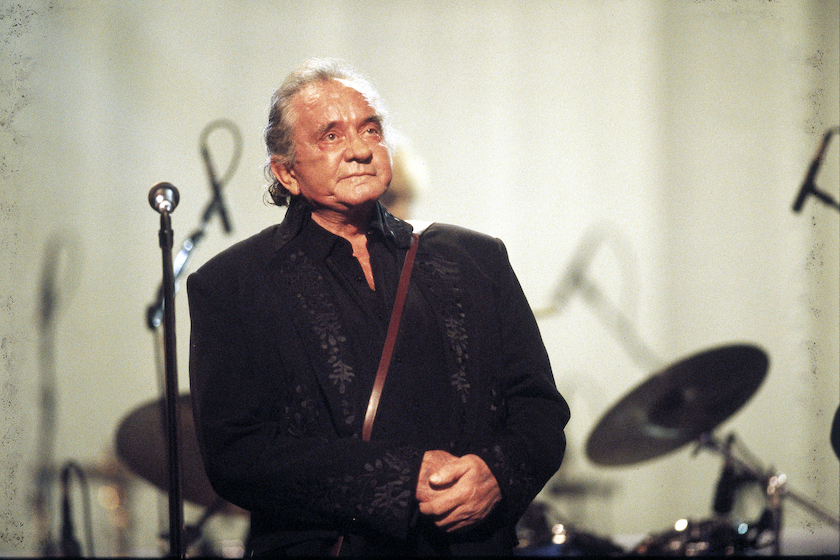
Kevin Mazur/WireImage
Socially-conscious folk legend Leonard Cohen was no less of a people's poet than Cash, Kristofferson or Merle Haggard. Thus, it's no surprise that a cover of Cohen's country-flavored "Bird on a Wire" strengthened Rubin's argument that Cash had more great albums left in him. Listen here.
"Tennessee Stud"
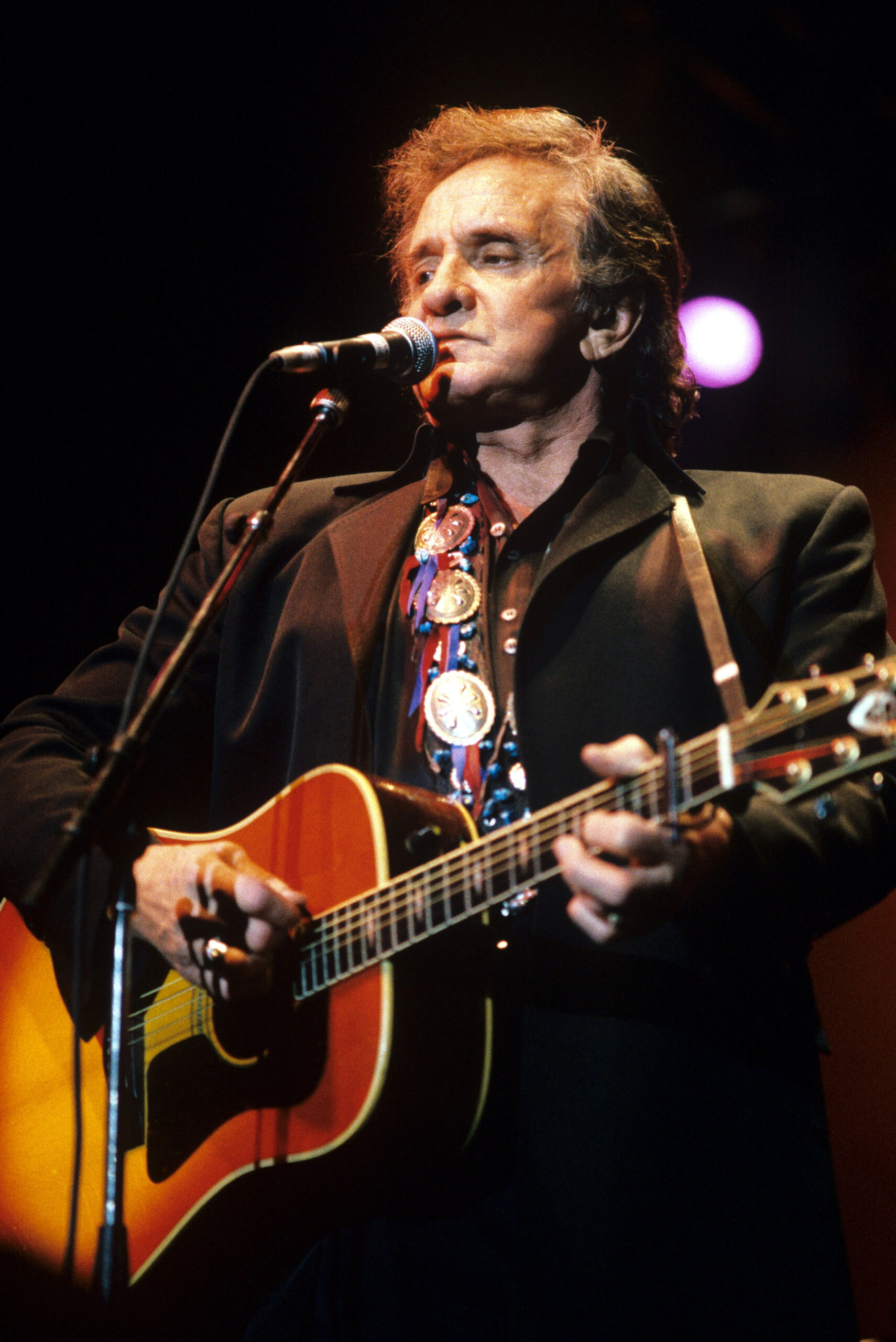
Brian Rasic/Getty Images
Folk songster Jimmy Driftwood wrote this often-recorded classic in the '50s. In the context of American Recordings, a song popularized by pop-country crooner Eddy Arnold represents the vivid, commercially-viable storytelling from the opening chapter of the Cash legend. Listen here.
"Down There by the Train"
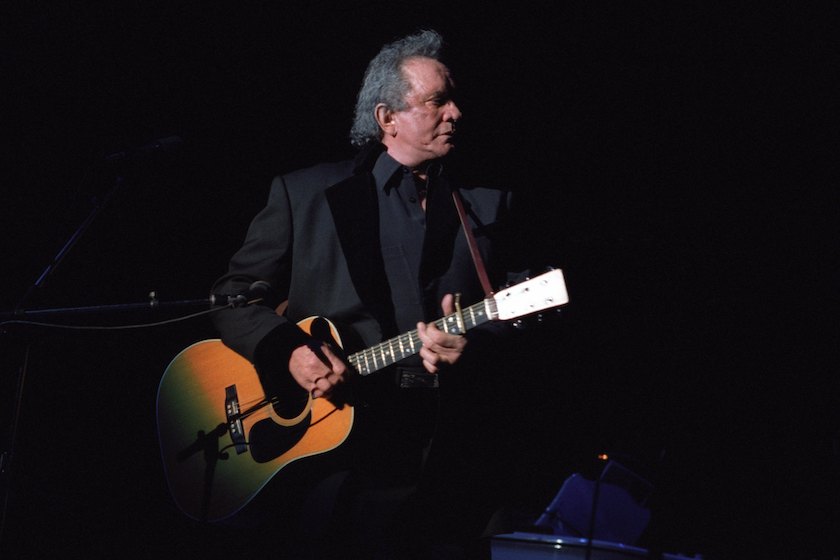
Jim Steinfeldt/Michael Ochs Archives/Getty Images
Thematically, this invitation to board the gospel train could pass as a Cash original. Instead, it's by Tom Waits: a cult hero with a similarly hard-nosed sense of storytelling. Listen here.
"Redemption"
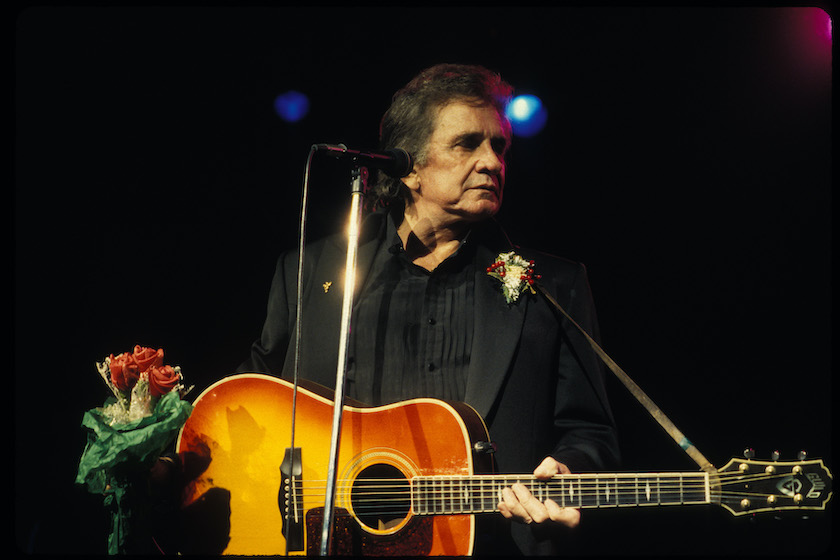
Ebet Roberts/Redferns
Cash's booming voice sounds ominous for the first time in his American Recordings era on this love poem for Jesus that's equally moving and macabre. Listen here.
"Like a Soldier"
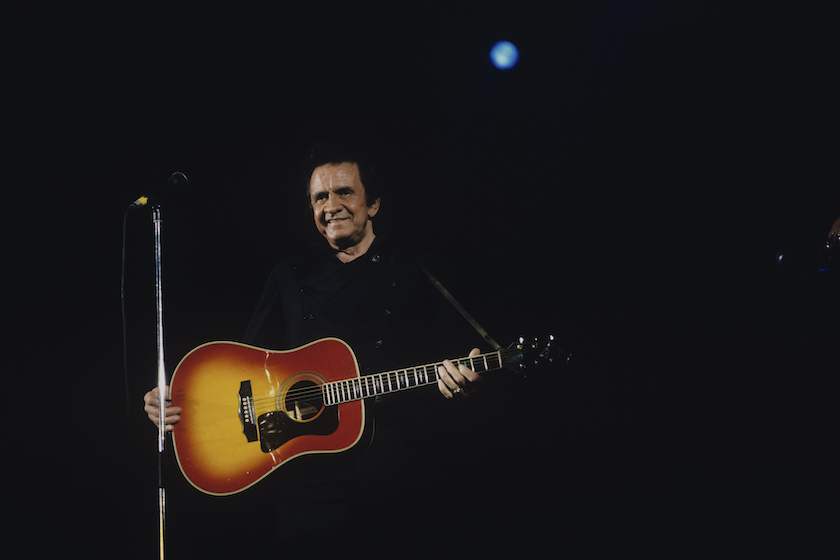
David Redfern/Redferns
Another Cash original, "Like a Soldier" is a song about overcoming past struggles that suited the moment for the Man in Black, who'd relapsed as recently as 1992. The line "every day gets better than the day before" offers hope to listeners wrestling with their own personal demons. Listen here.
"The Man Who Couldn't Cry"
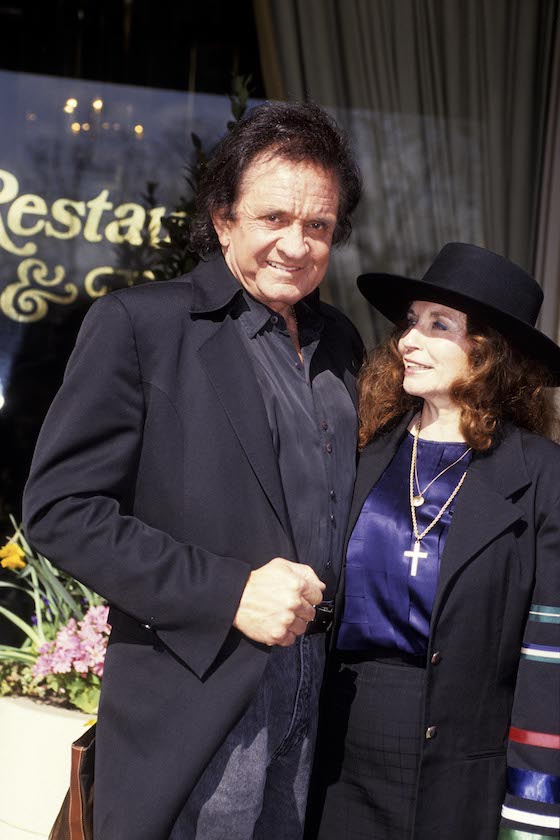
Mick Hutson/Redferns
The same sillier side of Cash that's associated with Shel Silverstein's "A Boy Named Sue" closes the album via a live cover of folk singer-songwriter Loudon Wainwright III's purposefully absurd "The Man Who Couldn't Cry." It's a reminder that humor always fit the same Cash puzzle as traditional folk, modern country and old-time religion. Listen here.
